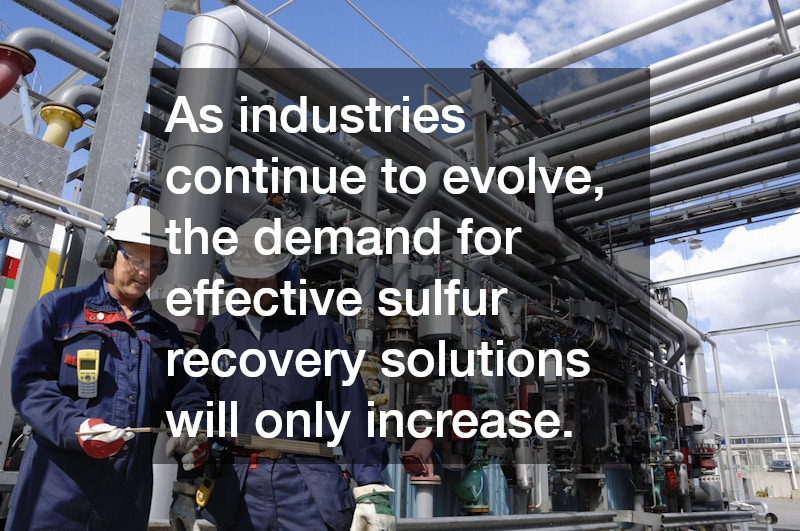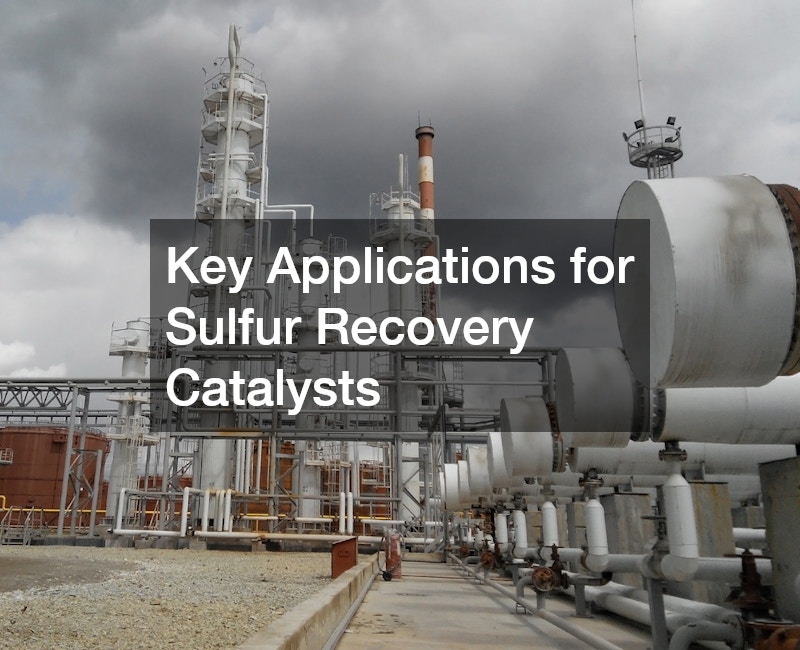Sulfur recovery catalysts play a pivotal role in the energy industry, particularly within oil and gas processing plants. The increasing emphasis on environmentally friendly practices has amplified the importance of efficient sulfur recovery processes. By implementing these catalysts, industries can not only comply with environmental regulations but also enhance their operational efficiencies.
In essence, these catalysts facilitate the conversion of hydrogen sulfide waste into elemental sulfur, a valuable byproduct. The resultant sulfur can then be used in various industries, including fertilizer production and chemical manufacturing. Hence, the adoption of sulfur recovery catalysts has become indispensable in modern industrial practices.
Given the growing demand for sulfur and stringent environmental mandates, understanding the applications and benefits of these catalysts is crucial. This article delves into the primary applications of sulfur recovery catalysts. It will also discuss their significance and explore the evolving market dynamics.
Enhancing Environmental Compliance
One of the key applications of sulfur recovery catalysts lies in their ability to assist industries in meeting environmental regulations. Emissions of sulfur compounds, particularly hydrogen sulfide, pose significant environmental and health hazards. Regulatory bodies worldwide impose strict limits on such emissions, necessitating efficient recovery solutions.
Sulfur recovery catalysts enable industries to effectively reduce their emissions, ensuring compliance with these stringent standards. These catalysts chemically convert harmful sulfur compounds into elemental sulfur, mitigating pollution. Consequently, industries can avoid hefty fines and penalties attributed to environmental infringements.
Moreover, the adoption of these catalysts reflects a commitment to sustainable practices, bolstering the corporate image of companies. This is particularly vital in today’s market, where consumers and stakeholders demand responsible environmental stewardship. Therefore, sulfur recovery catalysts serve as a cornerstone for achieving both regulatory compliance and sustainable industrial operations.
Optimizing Industrial Processes
In addition to environmental benefits, sulfur recovery catalysts significantly enhance industrial process efficiencies. These catalysts streamline the recovery process by facilitating faster reaction rates and higher surface area interactions. This optimizes the conversion of hydrogen sulfide to sulfur, thereby reducing processing time and energy consumption.
The increased efficiency translates to cost savings for industries, making sulfur recovery an economical endeavor. Furthermore, these catalysts are designed to withstand harsh industrial conditions, ensuring longevity and sustained performance. As a result, industries experience reduced operational downtime and maintenance expenses, further enhancing cost-efficiency.
Industries utilizing these catalysts are better positioned to remain competitive in an economically challenging landscape. The optimization of process efficiencies fosters increased production output without compromising environmental responsibilities. Thus, sulfur recovery catalysts provide a dual benefit of economic and environmental optimization.
Supporting Economic Viability
Beyond compliance and process optimization, sulfur recovery catalysts contribute significantly to the economic aspects of industries. The recovered sulfur is a valuable commodity with applications across multiple sectors. Its market demand spans agriculture, where it is a vital component in fertilizers, and the chemical industry for producing sulfuric acid.
By leveraging sulfur recovery catalysts, industries can tap into an additional revenue stream through the sale of recovered sulfur. This diversifies income sources, providing financial resilience against market volatility. Furthermore, this approach aligns with the principle of circular economy by converting waste into valuable products, promoting economic and environmental sustainability.
In the long run, the economic benefits derived from sulfur recovery catalysis outweigh the initial investment costs. Companies can capitalize on the growing sulfur market while simultaneously enhancing their environmental credentials. Thus, sulfur recovery catalysts are integral not only for environmental sustainability but also for economic viability.
Sulfur recovery catalysts have become a cornerstone in modern industrial practices, offering a myriad of benefits ranging from environmental compliance to economic viability. They are indispensable tools in the mission to mitigate harmful emissions and optimize industrial processes. By effectively transforming potentially harmful sulfur compounds into beneficial sulfur, industries can align with regulatory standards and enhance their economic prospects.
The applications of these catalysts underscore their relevance in today’s market, characterized by increased scrutiny on environmental practices. Companies employing sulfur recovery catalysts benefit from enhanced operational efficiencies and expanded revenue opportunities. In essence, these catalysts offer a sustainable and economically advantageous solution to sulfur management in industrial settings.
As industries continue to evolve, the demand for effective sulfur recovery solutions will only increase. It is imperative for organizations to embrace these catalysts, ensuring they remain at the forefront of environmental responsibility and economic success. The transformative impact of sulfur recovery catalysts is poised to shape the future of industrial processes, cementing their significance in global operations.
.










